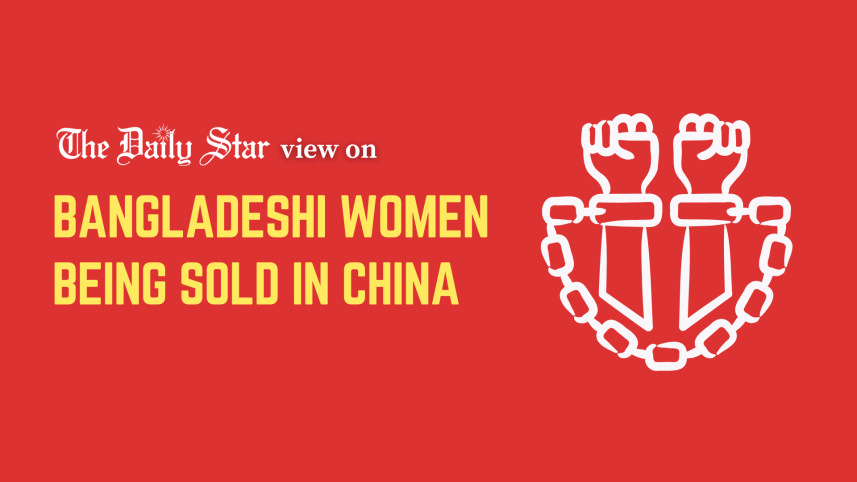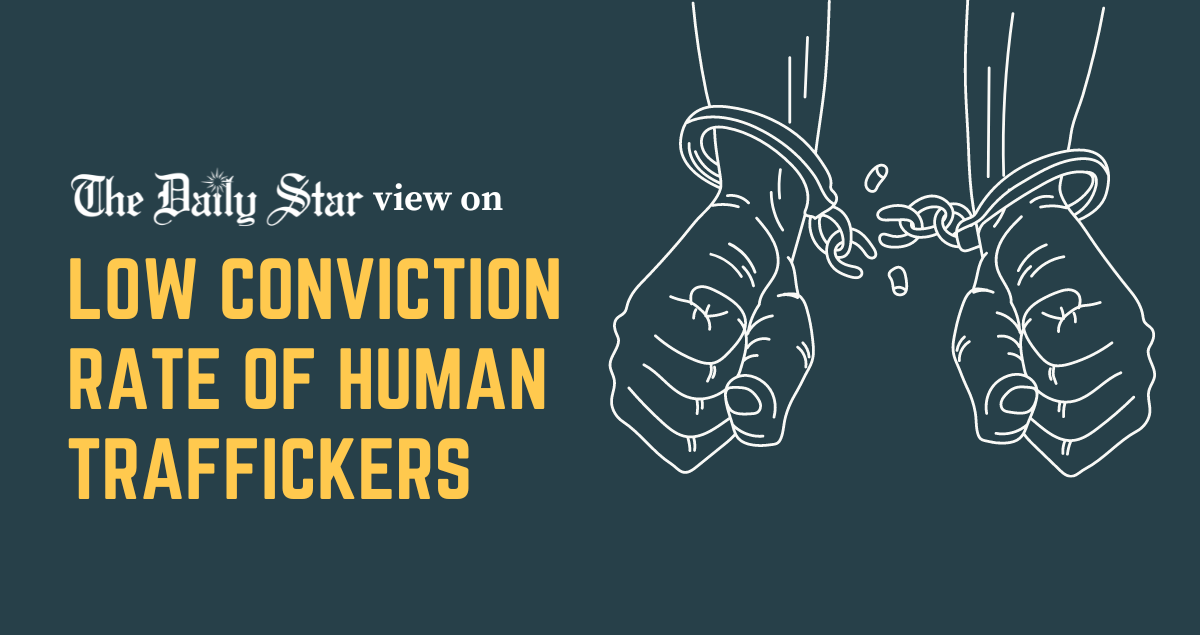Alarming trade of Indigenous women

It is concerning that Indigenous women are falling victim to trafficking gangs who smuggle them to China under the pretext of marriage, lucrative jobs or education opportunities. A report published in this daily mentioned several cases filed with police about gangs who forced women to marry Chinese nationals and then trafficked them to China. According to the report, these local gangs, some of which are operative in the capital's Uttara area, sell the women for Tk 10-20 lakh.
While Bangladeshi women and children are trafficked mostly to India and the Middle East, human trafficking to China came to focus six years ago when three women were rescued and brought back home. China's decades-long one child policy has created an imbalance in the country's sex ratio, which has driven the illicit trade of foreign women, mostly from Southeast Asia. In recent times, it appears that traffickers are also targeting Indigenous Bangladeshi women.
In addition to revamping the legal process, the government as well as organisations working to curb human trafficking must run awareness campaigns on social media and in targeted areas where Indigenous women from marginalised communities might fall into traffickers' traps.
In an email responding to the most recent trafficking cases, the Chinese government reiterated its stance against human trafficking to protect the rights of women and children, which is undoubtedly a positive sign. However, law enforcement agencies in Bangladesh, too, should increase their vigilance against local trafficking gangs that are arranging these fake, coerced or exploitative marriages. We need to address the low rate of conviction and inadequate sentencing of perpetrators of human trafficking. In addition to revamping the legal process, the government as well as organisations working to curb human trafficking must run awareness campaigns on social media and in targeted areas where Indigenous women from marginalised communities might fall into traffickers' traps.
Finally, the government must address the root causes of trafficking in person: poverty, inequality, and education. Given the historical and political reality of our country's Indigenous communities, young women especially from the Chittagong Hill Tracts are vulnerable to exploitative practices. Historically, sexual violence and abuse have been used against CHT women to dispossess the community of their resources. It is not surprising that in the absence of justice for those crimes, the false promise of a better life elsewhere would interest CHT women and thus increase their vulnerability to human trafficking. To establish a sense of security among Indigenous women, the government needs to truly empower the communities and fulfil the promises of the CHT Peace Accord.



 For all latest news, follow The Daily Star's Google News channel.
For all latest news, follow The Daily Star's Google News channel. 

Comments